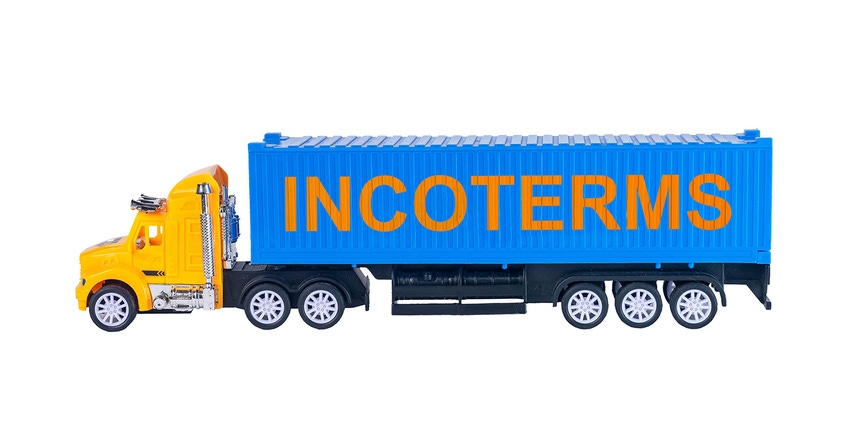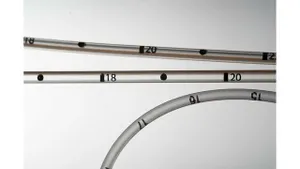Incorporating Incoterms in Molding Contracts to Reduce Risk
Misunderstandings that arise during the transport of goods can have a negative impact on your business. Incoterms can prevent that, but first you must understand what the terms mean.
September 19, 2022

Editor's note: As molders experience greater challenges with supply chains, material availability, and onerous contract terms, it is imperative that they take the time now to address risk. In the first article of this four-part series, Alan Rothenbuecher, a lawyer with deep ties to the plastics industry, provided advice on how molders can minimize risk related to warranties. In this, the second article in the series, he explains how the judicious use of Incoterms in sales contracts mitigate risk in the transport and delivery of goods.
You receive an order to make parts. You make and package the parts on time and have them ready for pickup at your shipping dock. Through no fault of your own, the shipping company your customer directed you to use does not show up to pick up the parts or, worse yet, loses or damages the parts en route. Next thing you know, your customer is asking you to make this all right, saying you are responsible for any resulting losses, including any shutdowns of assembly lines because the parts are late. If you did not pay attention to your delivery terms and the associated responsibilities, you could be left holding the bag.
The preceding example shows that misunderstandings can arise during the transport of goods that negatively impact your business and your customer’s business. To prevent potential misunderstandings, the International Chamber of Commerce (ICC) implemented a set of rules known as Incoterms for parties to build into their sales contracts to clarify expectations and obligations for the transport of goods involved in a transaction.
Incoterms serve as universal, but optional, rules that specify which party must pay for and manage shipping, insurance, documentation, customs clearance, and other logistical aspects of a transaction. All molders should use Incoterms to manage their risk. But to manage that risk, you must also understand what these terms mean.
Incoterms: What they mean
The ICC first established Incoterms in 1936 and updates those terms periodically to accommodate changes in trade practices. The most recent update was made in 2020. Parties must specify which version of Incoterms they are referring to in their agreement. Incoterms are not mandatory — they are a voluntary, globally accepted way of defining responsibilities between parties to a transaction.
For Incoterms to have a legal effect, parties must incorporate these terms into their sales contracts. Parties may negotiate on which terms they want to include in their agreements. Examples of activities where Incoterms can be used include supply agreements, filling out purchase orders, labeling shipments for transport, completing a certificate of origin, or documenting a free carrier agreement (FCA).
Currently, 11 Incoterms exist for use in trade contracts to allocate risk and responsibility and promote clarity between buyers and sellers. Incoterms that apply to all modes of transport are:
EXW — Ex Works (include place of delivery)
FCA — Free Carrier (include named place of delivery)
CPT — Carriage Paid to (include place of destination)
CIP — Carriage and Insurance Paid to (include place of destination)
DAP — Delivered at Place (include named place of destination)
DPU — Delivered at Place Unloaded (include place of destination)
DDP — Delivered Duty Paid (include place of destination)
Incoterms that apply only to maritime transport are:
FAS — Free Alongside Ship (include named port of loading)
FOB — Free on Board (include named port of loading)
CFR — Cost and Freight (include named port of destination)
CIF — Cost Insurance and Freight (include named port of destination)
Using Incoterms in sales contracts
For each Incoterm, it is critical to pay close attention to how risk is being allocated between the parties, and, specifically, the moment at which responsibility shifts from seller to buyer. For example, as to the three Incoterms most often used:
EXW (Ex Works) provides protection to a seller by requiring the buyer to assume all risk and transportation costs. EXW is the only Incoterm that assigns export clearance responsibility to the buyer. Including this term in a sales contract ensures that the seller is only required to make goods available for pickup at the seller’s own business location, or another defined location, on a specified date. Under EXW, the seller is not obligated to load the goods or clear them for export.
FCA (Free Carrier) can protect sellers from issues that can arise when a seller is responsible for loading goods on some other transport hired by the buyer, rather than directly on an international carrier. Under FCA, the risk passes from the seller to the buyer at the agreed upon point of delivery.
FOB (Free on Board) means that the seller is obligated to deliver the goods on board a ship for the buyer. An FOB term can contain extensions such as “stowed” or “stowed and trimmed” to ensure that the seller fulfills certain loading requirements. With this term, sellers must know the exact requirements to which they are bound by the contract.
Sellers should pay close attention to if they are assuming risk under the terms of a contract until the goods are delivered to the buyer — especially if the customer directs the method and mode of shipment. Buyers should be the ones responsible for all that remains in their control in doing business with a seller.
Finally, it is important to note that Incoterms do not cover the point at which title (ownership of goods) transfers from seller to buyer, or the documents that a seller must provide to a buyer to clear customs.
Key takeaways
Incoterms offer common terminology that helps parties engage in trade activities necessary for doing business. These terms identify which party assumes the risk at each stage of a transaction involving the transport of goods. Incoterms also can outline how costs are divided between the parties of a transaction. Sellers must carefully review Incoterms rules and wording and build the right terms into their sales contracts to protect against risk and potential cost. Pick terms that only place risk on the actions you control — not also on the actions that the buyer controls.
Special thanks to Katie Berens, who assisted with this article.
|
About the author
Often hailed as the “plastics lawyer,” Alan Rothenbuecher has developed particular expertise in the plastics industry, enabling him to assess business trends and needs to proactively develop solutions for molders. His industry expertise has led to Rothenbuecher being selected to act as counsel for and to serve on the boards of trade associations and molders considered leaders in the plastics industry.
About the Author(s)
You May Also Like





